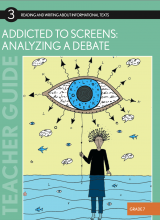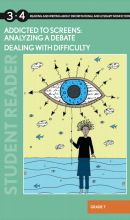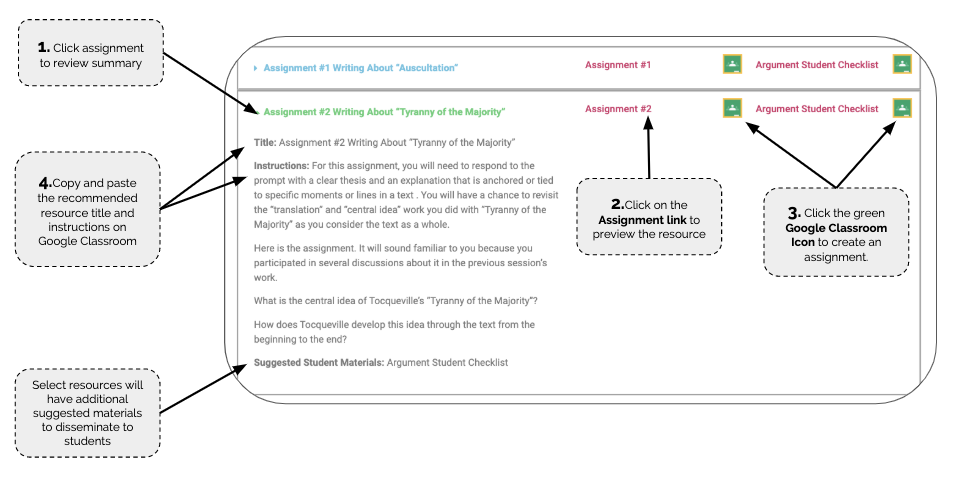Addicted to Screens: Analyzing a Debate - Grade 7
This study consists of two parts, each focused on a single text about screen time and its effects on young people. The first text, “It’s ‘digital heroin’: How screens turn kids into psychotic junkies” is written by Dr. Nicholas Kardaras, a psychotherapist and author. Kardaras’s perspective on the issue is quite clear from the title, and the work students will do with his text provides an important introduction to the topic of screen time and addiction, as well as to the basic and essential cycles of teaching and learning that will continue into the second half of the unit.
The second cycle of work features a direct response to Kardaras’s. “Why call
ing screen time ‘digital heroin’ is digital garbage” by science reporter Rachel Becker examines the methods behind Kardaras’s conclusions as well as additional, more nuanced research to address many of the popular beliefs about screen time and addiction. Although this text is somewhat longer and more complex, the work students experienced with the first text leaves them well-equipped to meet the demands and related tasks of the second. In the final two sessions of the unit, students have the opportunity to work across the two texts to explain the debates about screen time, whether there’s any truth to them, and what they reveal about psychology, the brain, and addictive behaviors.


Table of Contents
Text Audio
It’s “digital heroin”: How screens turn kids into psychotic junkies
by Nicholas Kardaras
Writing Tasks
Title: S-8: Writing Across Texts Technology and Addiction
Session 8
Charts for Discussion
Title: S-1: Writing Across Texts Technology and Addiction
Session 1
Title: S-1: Kardaras: Unfamiliar Terms and Confusing Moments
Session 1
Title: S-1: Kardaras: Our Questions About Technology and Addiction
Session 1
Title: S-2: What We Learned About Identifying and Resolving Unfamiliar Terms or Difficult Moments
Session 2
Title: S-3: Kardaras’s Claims About Young People and Technology
Session 3
Title: S-5: What We Learned From Reading Becker
Session 5
Title: S-5: Becker: Unfamiliar Terms and Confusing Moments
Session 5
